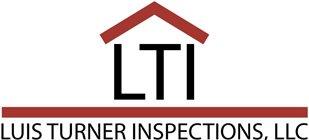Just any inspection doesn’t guarantee smooth sailing.
You can be confident that you’re buying a good, solid house … even if you’re not a structural engineer, plumber, roofer, or professional air quality evaluator.
How? You hire a home inspector, of course.
This is true for new-construction homes, historic treasures, or your standard 30-year-old find.
Some tips culled from our friends.
1. Get a recommendation
Your real estate agent will know a home inspector, and that inspector has probably worked with him or her for years and can be trusted. However, you’re the one buying the house, so make sure you choose someone like Luis that you can communicate with and trust. Look for testimonials from Realtors and home owners.
2. Read the Report
Be sure to read the report from your inspector after the job’s done. Ask questions and don’t make the mistake of #3
3. Being too intimidated to ask questions
Unless you’re a contractor, you probably don’t know much about the “guts” of the house: the electrical, plumbing, and HVAC systems.
So ask questions. A good inspector will answer all of your questions thoroughly and will explain what he’s doing and looking at all along the way.
If you don’t understand what the inspector just told you, ask for clarification.
4. Not turning on utilities
For a normal home inspection, the utilities will still be connected by the sellers — but that isn’t always the case. With certain foreclosure properties, it’s the buyer’s responsibility to get utilities turned on for an inspection.
If utilities are turned off, you’ll miss seeing important stuff, such as whether the dishwasher drains properly, the pipes leak, or the water flow is sufficient. (When you have a head full of shampoo isn’t when you want to find that out.)
5. Not testing for water problems
If the home you’re buying gets its water from a drinking well (about 15% of U.S. homes do), you need to have the water tested for contaminants.
6. Assuming a new-construction home is fine
You probably wouldn’t have a new car inspected by a mechanic before buying it, so the same goes when buying a new house, right?
Surprisingly, new homes still need to be inspected. Some have been known to topple faster than a five-tier wedding cake without dowel support. Many have defects, even if they did meet county codes.
If the builder reassures you that the house is perfect, get it inspected anyway. Save your urge to gamble for the casinos.
7. Not hiring a specialist if you need to
A home inspector is like a doctor who’s a general practitioner. They both can diagnose problems, and they both know when to refer you to a specialist. If your housing inspector recommends a specialist, you should get one.
Buyers shouldn’t be discouraged or afraid of paying a little more money to have secondary specialized inspections done, it may save them a ton of money later on.
8. Not taking the report seriously
It’s understandable to want to buy a house after you’ve gone to all the trouble of finding it, putting in an offer, and then paying for an inspection. But don’t forget that the inspection is not a mere formality — you actually need to consider the results.
If the inspector finds problems that the seller won’t address, depending on the severity of the problems, you might need to pass on the deal.
